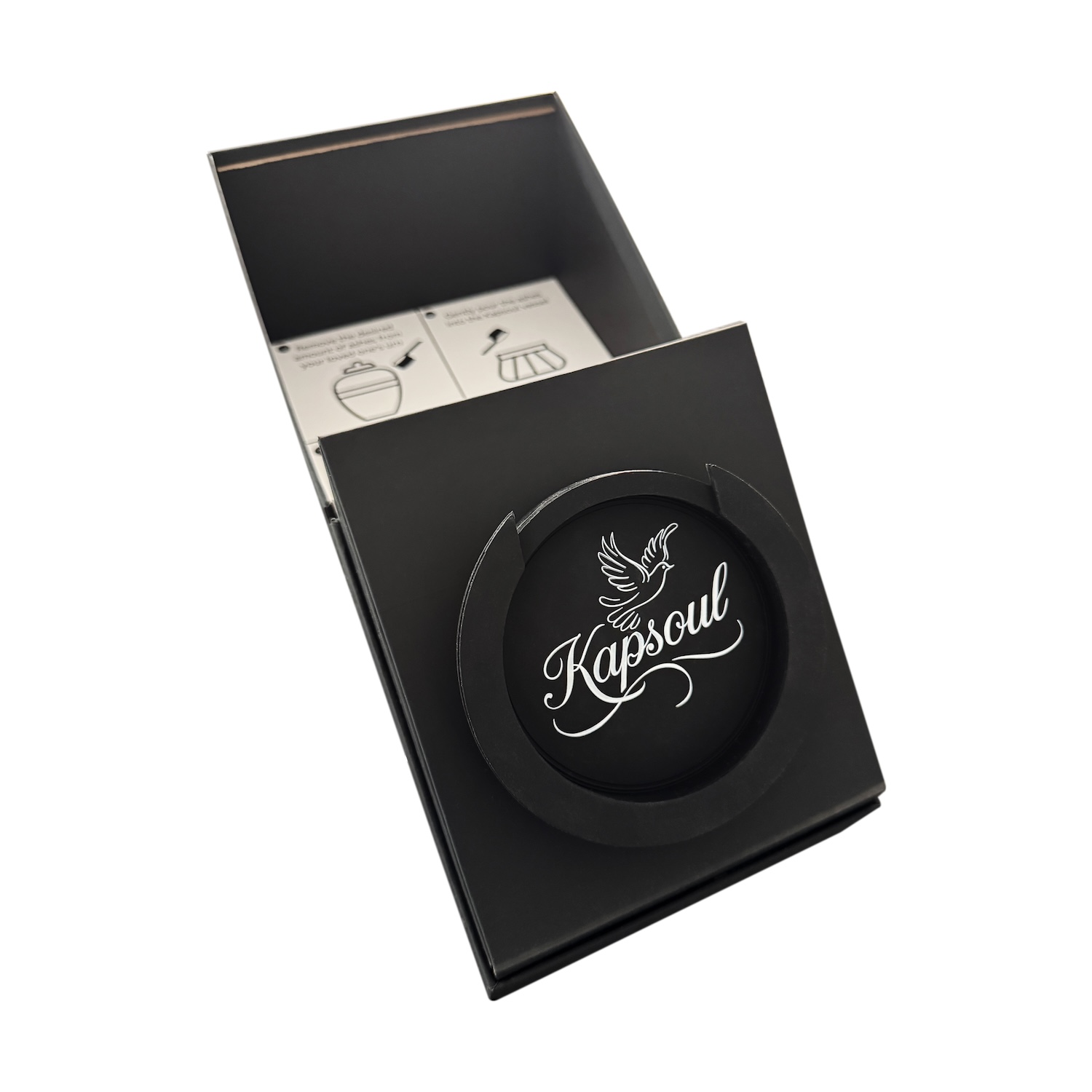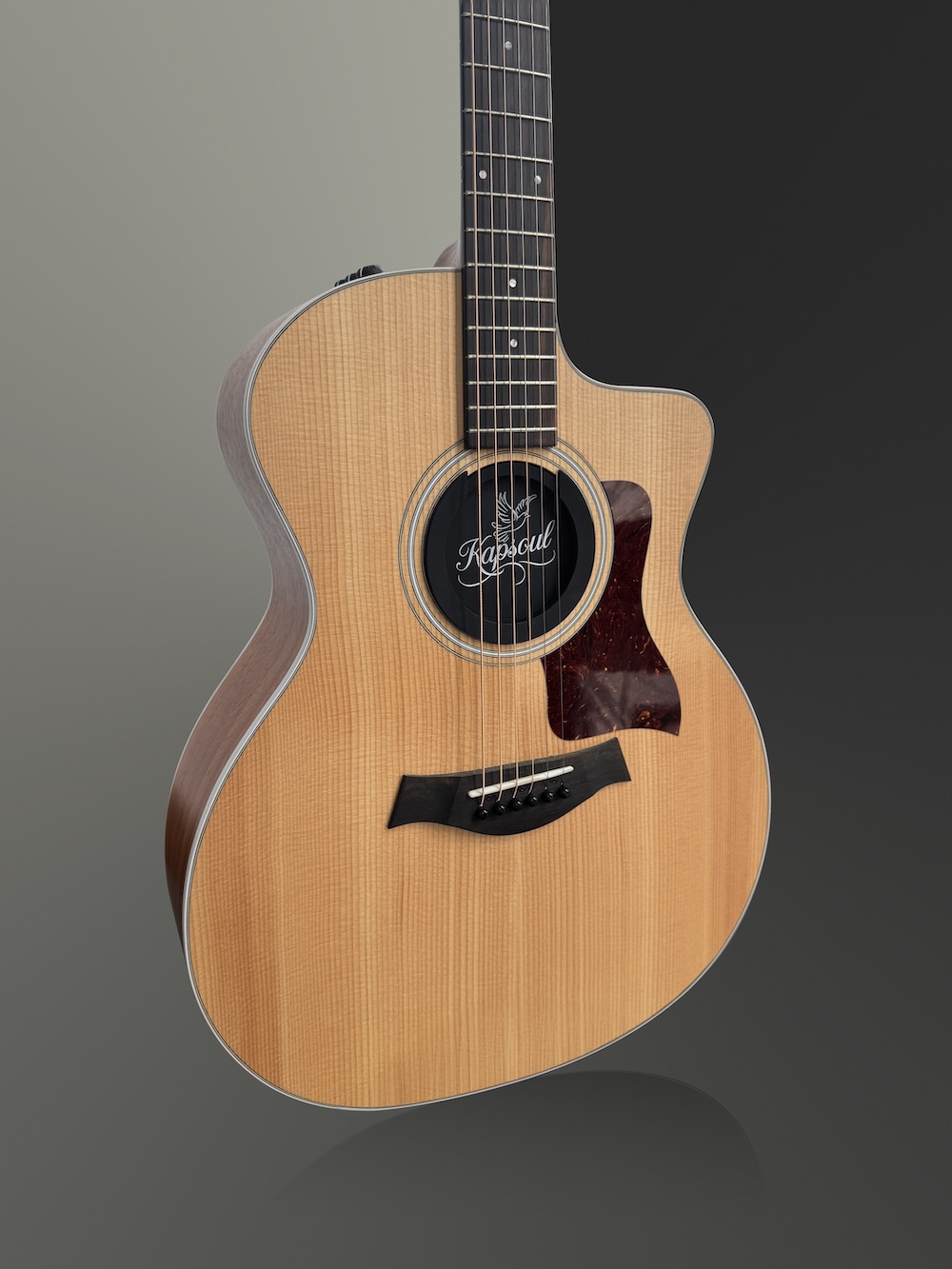As a guitar teacher with decades of experience, I’ve witnessed music’s extraordinary power to heal wounds that words simply cannot reach. I’ve seen students discover solace in six strings during their darkest moments, transforming raw grief into something beautiful and meaningful, much like the idea of personalized guitar cremation urns for honoring a musician’s legacy. Music therapy isn’t just a clinical practice—it’s a fundamental human response to emotional pain that we, as guitarists and teachers, facilitate every day.
The intersection of music and healing becomes even more profound when we consider innovative products like KapSoul, which creates a deeper connection between musical expression and memorial remembrance. This unique soundhole cover for acoustic guitars offers a way to literally carry loved ones with us as we play, transforming our instruments into living memorials that vibrate with memory and love.
The Science Behind Music Therapy
Music therapy operates on multiple neurological levels simultaneously. When my students play guitar, their brains activate regions responsible for motor control, auditory processing, emotional regulation, and memory formation. This multi-region activation creates what researchers call “neural cross-training,” where different brain systems work together to process complex emotions.
Studies from the American Music Therapy Association show that musical engagement releases endorphins, reduces cortisol levels, and stimulates the production of dopamine and serotonin—our brain’s natural mood elevators. For grieving individuals, these neurochemical changes can provide relief from the overwhelming sadness and anxiety that often accompany loss.
The rhythmic aspects of guitar playing offer additional therapeutic benefits. Strumming patterns and fingerpicking sequences create what psychologists call “bilateral stimulation,” engaging both brain hemispheres and promoting emotional integration. This process helps individuals process traumatic memories and find balance during emotional turmoil.
Guitar as a Therapeutic Instrument
The guitar holds unique advantages as a therapeutic tool. Unlike other instruments that require extensive technical training, basic guitar skills can be learned relatively quickly, making musical expression accessible during vulnerable emotional states. The physical act of pressing strings and feeling vibrations through your body creates a tangible connection between internal emotions and external expression.
I’ve observed that students dealing with grief often gravitate toward specific playing techniques that mirror their emotional state. Gentle fingerpicking might reflect tender remembrance, while more aggressive strumming could express anger or frustration. The guitar accommodates these varied emotional expressions without judgment.
The instrument’s portability also supports therapeutic consistency. Students can carry their guitars anywhere, ensuring access to musical healing whenever emotions become overwhelming. This accessibility makes guitar-based music therapy particularly effective for those processing loss and trauma.
Traditional Music Therapy Approaches
Established music therapy techniques provide structured frameworks for emotional healing. Receptive music therapy involves listening to carefully selected pieces that evoke specific emotional responses. For guitarists, this might mean playing songs that held special meaning for deceased loved ones.
Improvisational therapy encourages spontaneous musical expression without predetermined structure. I often guide grieving students through improvisation exercises where they let their emotions flow through their fingers without worrying about technical perfection or musical “correctness.”
Compositional therapy involves creating original pieces that express personal experiences. Many students find tremendous healing in writing songs about their loved ones, transforming memories into melodies that preserve and honor their relationships.
How KapSoul Enhances Traditional Music Therapy

KapSoul represents a breakthrough in personalized music therapy by creating physical connection between the therapeutic process and memorial remembrance. This specially designed soundhole cover fits most acoustic guitars with 4-inch diameter sound holes and can securely hold up to 8 ounces of a loved one’s ashes within its PPH (Polypropylene Homopolymer) interior lining.
The therapeutic impact of KapSoul extends beyond traditional music therapy approaches by adding a tangible element to the healing process. When students play with KapSoul installed, the vibrations from their guitar strings literally move through the space where their loved one rests, creating a physical manifestation of continuing bonds.
This connection transforms routine practice sessions into memorial rituals that honor the deceased while supporting the griever’s healing journey. The included scooper facilitates respectful placement of ashes, ensuring the process remains dignified during an already difficult time.
The Therapeutic Benefits of KapSoul Integration
Incorporating KapSoul into music therapy practice offers several unique therapeutic advantages:
- Enhanced Emotional Processing: Physical connection with loved one’s remains while playing facilitates deeper emotional integration
- Ritual Development: Creates meaningful ceremonies around musical practice and remembrance
- Continuing Bonds Support: Maintains healthy connection with deceased loved ones through shared musical experiences
- Comfort During Grief Waves: Provides immediate access to memorial connection when grief suddenly intensifies
- Community Building: Facilitates sharing experiences with other musicians dealing with loss
- Legacy Creation: Transforms guitar into family heirloom with deep personal significance
- Therapeutic Consistency: Ensures memorial presence is available during all musical activities
- Improved Focus: Memorial connection enhances concentration and intentionality during practice
- Reduced Isolation: Combats loneliness by maintaining sense of presence with loved ones
- Emotional Regulation: Provides healthy outlet for grief expression through musical creation
Practical Applications in Therapeutic Settings
Implementing KapSoul in therapeutic contexts requires careful consideration of individual readiness and emotional stability. Not every grieving individual will be prepared for this level of physical connection with their loss, making proper assessment crucial.
Initial sessions should focus on preparing clients emotionally for the KapSoul installation process. This preparation might involve discussing their relationship with the deceased, exploring their comfort level with physical memorials, and ensuring they have adequate support systems in place.
The installation ceremony itself becomes a therapeutic event. Many clients find that placing their loved one’s ashes represents a final act of care that transforms their guitar into a living memorial. This process should be approached with reverence and patience, allowing clients to process emotions as they arise.
Post-installation therapy sessions often focus on integrating this new dimension into their musical practice. Clients learn to navigate the enhanced emotional intensity that comes with playing their memorial guitar while developing healthy coping strategies for overwhelming moments.
Supporting Clients Through the KapSoul Journey
Teaching clients to use KapSoul therapeutically requires specialized approaches. Initial playing sessions might be emotionally overwhelming, so I always recommend starting with short, gentle pieces that held positive associations for the deceased.
Encouraging clients to speak to their loved one while playing helps normalize the continuing relationship aspect of KapSoul use. This practice validates their ongoing emotional connection while providing a healthy outlet for communication with the deceased.
Journaling about their KapSoul experiences helps clients track their emotional progress and identify patterns in their grief processing. Many discover that their playing becomes more expressive and meaningful over time as they adjust to their enhanced memorial connection.
Long-term Therapeutic Outcomes
Clients who integrate KapSoul into their therapeutic practice often report profound changes in their grief experience. The memorial connection transforms their relationship with loss from something that happened to them into something they actively engage with through music.
Many describe feeling their loved one’s presence during playing sessions, providing comfort during difficult moments and celebrating joyful memories through shared musical experience s. This ongoing connection supports healthy grief processing by maintaining bonds rather than seeking closure.
s. This ongoing connection supports healthy grief processing by maintaining bonds rather than seeking closure.
The therapeutic benefits often extend to family members and friends who witness these musical memorial sessions. KapSoul creates opportunities for collective grieving and shared remembrance that strengthen support networks and facilitate community healing.
Conclusion: A New Paradigm in Musical Healing
KapSoul represents more than an innovative product—it’s a new paradigm in music therapy that acknowledges the profound connection between physical presence, musical expression, and emotional healing. For guitar teachers and therapists working with grieving clients, it offers a powerful tool that enhances traditional therapeutic approaches while honoring the deep human need for continuing connection with those we’ve lost.
The combination of music’s natural therapeutic properties with KapSoul’s memorial presence creates healing opportunities that transcend conventional therapy boundaries. By literally incorporating loved ones into the musical healing process, we validate the ongoing nature of love and provide tangible support for those navigating the complex landscape of grief and recovery.
